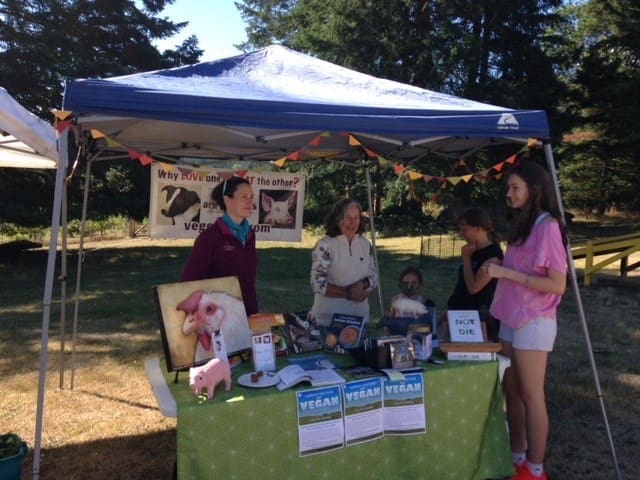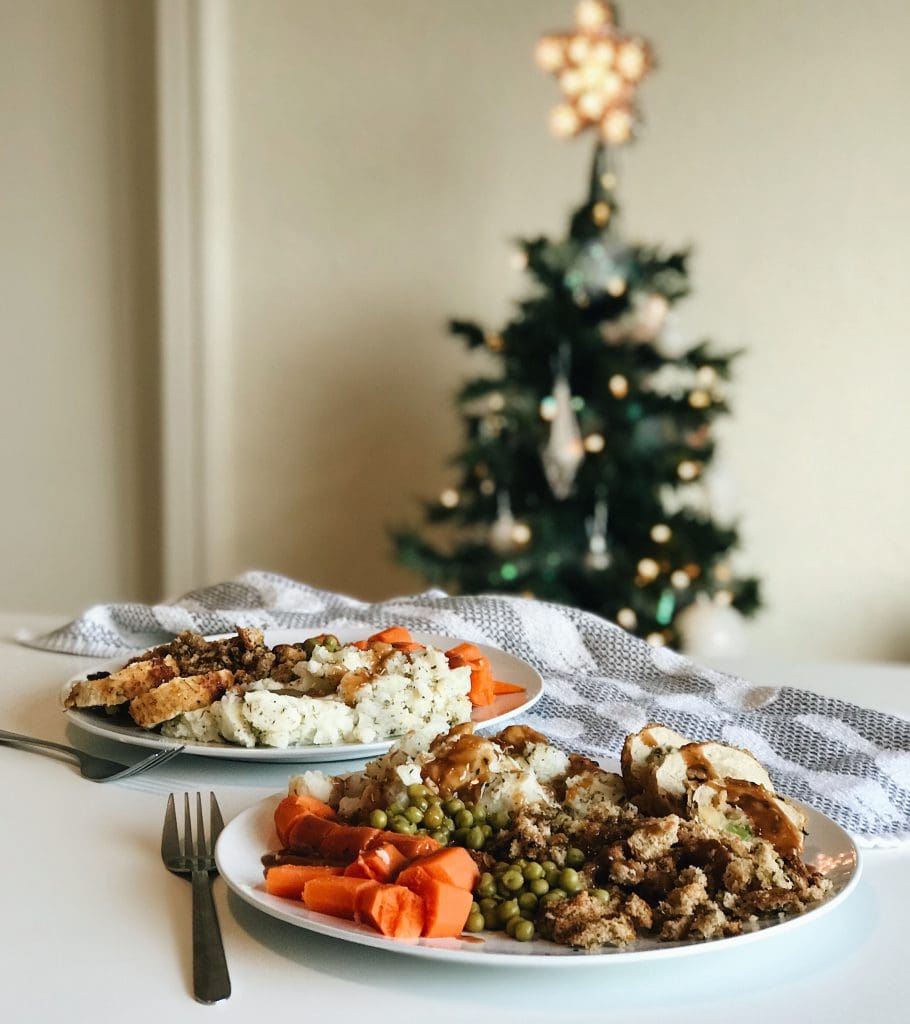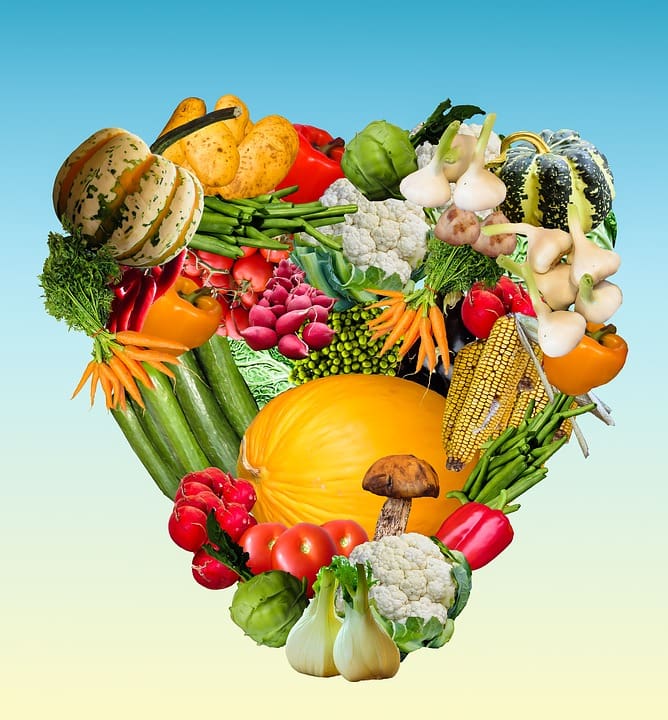
Try these plant-based ideas for Thanksgiving Dinner
Every year in Canada, 20 million turkeys are slaughtered, with many ending up on dinner tables for Thanksgiving.
Most turkeys are bred for fast growth, which causes them to be top-heavy, leading to painful bone deformities and lameness. Most are raised in cramped conditions on factory farms, where they suffer boredom and frustration because they lack the space to express natural behaviours. They are also subjected to painful beak trimming and toe trimming without pain medication.
A plant-based Thanksgiving is a compassionate alternative to eating turkeys or other animals for the celebration. The good news is that there are plenty of cruelty-free options and resources for a meat-free holiday. Here are our suggestions on how to enjoy a compassionate Thanksgiving dinner in Vancouver.
A great option is the Annual Compassionate Thanksgiving Potluck Celebration on October 8th, which this year is being hosted by Vancouver’s Meatless Meetup and Vegans of UBC. Proceeds from this family-friendly event will go to cover costs and to support Earthsave Canada’s school talks program.
If your budget allows some fine dining, Vancouver’s upscale plant-based restaurant, The Acorn, is offering an ‘Everything but the Bird Thanksgiving Feast’ on October 7th and 8th, which it says will be an “indulgent, wildly seasonal” three-course dinner for $45 per person with optional wine pairings.
But if, like most people, you plan to prepare your own holiday dinner, there’s no shortage of alternatives to turkey. There are a number of great meatless roasts available from Vancouver’s Vegan Supply, including offerings from Gardein, Field Roast and Tofurky.
And, of course, there are plenty of online recipes and suggestions for a plant-based Thanksgiving. The Oh She Glows recipe website offers lots of ideas, as does The Food Network and even this Toronto yoga centre’s site.
Plant-based choices for special celebrations are increasingly common, making it easy to enjoy a cruelty-free holiday feast.
Have a happy – and compassionate – Thanksgiving!


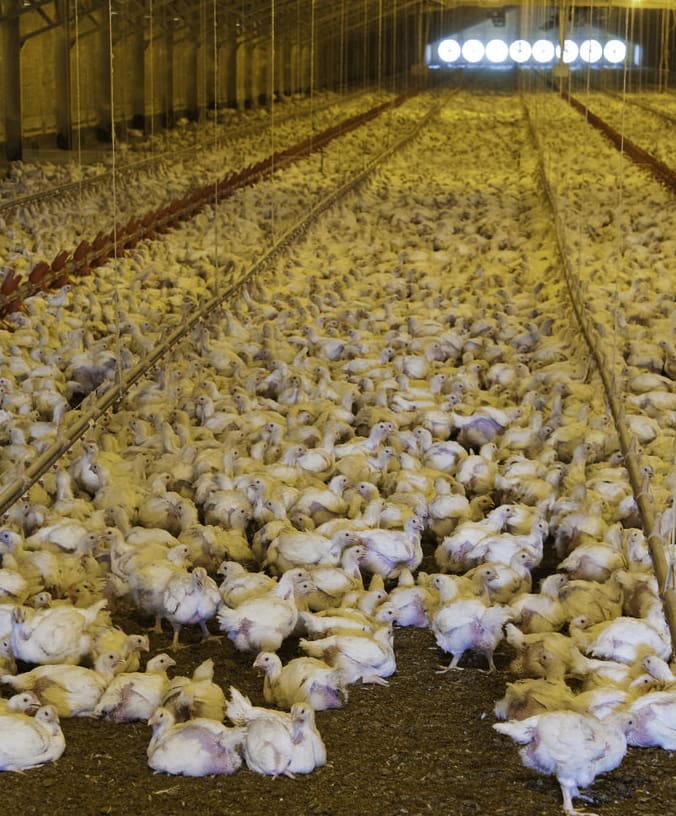
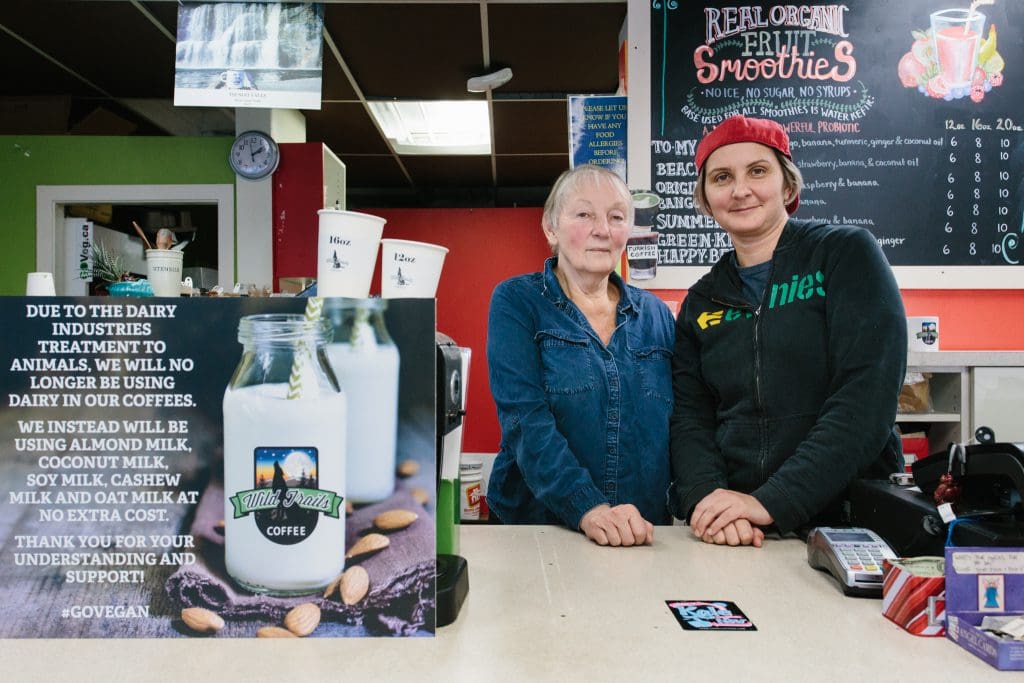


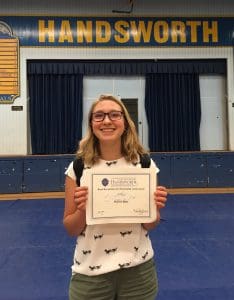






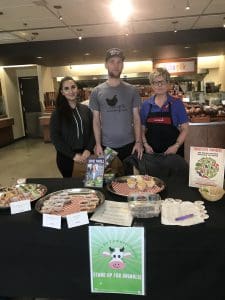 Kwantlen Polytechnic University’s food service provider, Sodexo, and the school’s “Let’s Be Compassionate” club recently joined forces to raise awareness of the University’s involvement in the increasingly popular Meatless Monday movement.
Kwantlen Polytechnic University’s food service provider, Sodexo, and the school’s “Let’s Be Compassionate” club recently joined forces to raise awareness of the University’s involvement in the increasingly popular Meatless Monday movement.